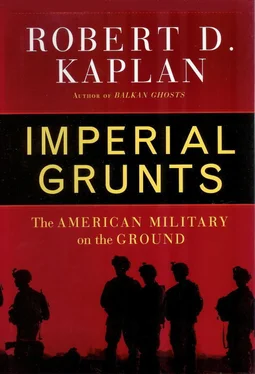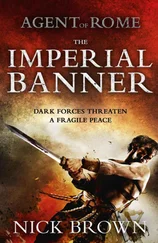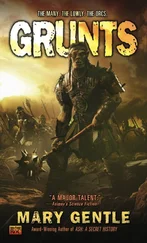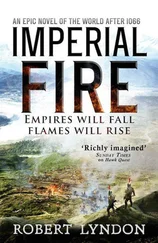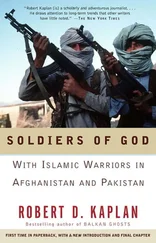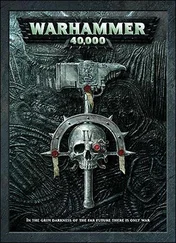Bob Innes, tall, red-haired, and extremely personable, was a fireman’s kid, born in 1950, who had grown up in an Irish-Italian neighborhood on Brooklyn’s Flatbush Avenue, near Ebbets Field. “I never got over the Dodgers deserting Brooklyn for Los Angeles,” he told me. “The three greatest villains of the twentieth century were Hitler, Stalin, and Walter O’Malley,” the Dodgers’ owner. Innes was now building from scratch a Yemeni coast guard.
“I was the product of a mixed marriage,” he began in homey deadpan. “My mother was from Brooklyn, my father from the Bronx. In the late 1950s my father retired to fireman’s heaven, Arizona: the real mythic west of the Apaches, that’s before it became suburban and upscale,” he sneered. On the streets of Phoenix, Innes learned Spanish from his Mexican friends. With good grades he got accepted to Stanford, which his parents couldn’t afford. With no scholarship from Stanford, he went to the U.S. Coast Guard Academy in New London, Connecticut.
Though we live in the jet age, 70 percent of all intercontinental cargo travels by sea, making the seas more strategic than ever. Most countries that claim to have navies really have coast guards. Though the U.S. Coast Guard consists of only thirty-eight thousand seamen and five thousand civilians, it is the largest coast guard in the world, as well as the world’s seventh largest navy. At first Innes served off the coasts of Greenland, Canada, Wake Island, and South Vietnam. “I saw the last U.S. aircraft leave Tan Son Nhut, where it was decided which dependents got on and which didn’t.
“What did I learn from the experience in Vietnam?” he asked himself out loud, letting the silence formulate his next statement. “I learned that honor and integrity are personal qualities, not institutional ones, not ones we should expect the state to always have. If you don’t like the policy, tough. Bad things happen in this world. You do the best you can in your job, and let the crybabies write the books.”
In the 1980s, Innes administered Coast Guard training programs in West Africa and every place in Latin America except for Bolivia and Paraguay, which don’t have seacoasts. His Spanish had become fluent. He was reading Cervantes in the early-seventeenth-century original text. He arrived in Monrovia, Liberia, in April 1980 just as Master Sgt. Samuel K. Doe staged a coup against President William Tolbert, and body parts were being paraded in the streets. “West Africa was Haiti on a pan-continental scale. The problems in South America weren’t even close. The high culture that in South America is a thing of beauty no longer exists in West Africa. But then there was Colombia….”
Innes was in Colombia from 1987 to 1990 as the U.S. Coast Guard, police, and naval attaché. He also worked for the Drug Enforcement Administration. “Yemen can be hell in a handbasket, but it’s paradise compared to the Colombia of that era.”
Manuel Noriega held the reins of power in Panama, providing a haven for insurgents and narco-traffickers along the Panamanian-Colombian border. The Iran-Contra scandal raged still, which hindered Washington from providing the Colombian military the support it needed to battle the guerrillas and drug lords. The period also saw a closing act of the deadly drama between cocaine kingpin Pablo Escobar and the Colombian government.
Innes told me of an incident in the Amazon region of southeastern Colombia in the late 1980s. In one village, he and the Colombian troops accompanying him found all of the adults crying because their children had been kidnapped. Unlike previous kidnappings, no one had demanded a ransom. He and a force of local soldiers took a boat upriver. In a clearing they discovered a dozen bodies of children with various body organs removed in a not so delicate fashion. The local police chief and others believed the carnage was committed by smugglers and dealers in the lucrative underground trade in body organs for transplant. A wealthy and unknowing foreigner from another continent—Innes never found out who—had a child who desperately needed a liver transplant. Such a foreigner would be willing to pay anything to find a liver that matched for his child, and he wouldn’t necessarily ask about how it was done.
“In Colombia,” Innes continued, “there was no distinction between military conquest, enslaving Indians, kidnapping, narco-trafficking, or a black market for body organs, so long as it turned a profit. Drugs are the lure that promises to break the cycle of poverty. By local standards the cartels were not inhuman. For many, drugs represented a means of escaping abject poverty.”
Narco-trafficking was, among other things, an economic weapon of the rising middle and upper-middle classes against the government, the traditional families, and the oligarchs who controlled the coca, the sweet coal, and the emeralds—the real wealth of the country.
“Violent, untimely death,” he went on, “was normal for young men in many parts of Colombia. It’s an intimate fact of their lives, it’s what most of them expected. Because they know they are going to die young and in pain, they want to do right by their families, breaking the cycle of poverty. Narco-traffickers knew this. In Colombia, minors would never be tried and sentenced as an adult regardless of the crime, so criminal organizations sent children to commit horrible acts on their behalf. The narco-traffickers kept their promises to these kids, financially rewarding their families if they were killed or caught. There is a big show of moving the kids’ parents into new little homes, and of sending the siblings off to private schools. That is more than the state could ever do for them. In Colombia, every pubescent teenager could be your assassin. In Yemen, crime operates within limits. Islamic law provides a vigorous moral compass.”
I should go to Colombia, I thought.
Innes retired from the Coast Guard in the late 1990s and was recalled to active duty after September 11, 2001.
“I was mowing my lawn in Louisiana when the twin towers were hit. Now I’ve got forty guys under me, only forty, but they’re a beginning. These guys,” he told me, getting intense, “were kicked out of the other Yemeni armed services, because they were smart, they spoke English, they asked too many questions and so nobody here trusted them. They were demoralized. ’No,’ I tell them. ‘Don’t you all understand! Before [Robert] Clive consolidated India for the British in the eighteenth century, Yemen, right through the Middle Ages, was the haunt of those like Sindbad the Sailor. Aden was among the largest ports in the world for a thousand years. The coast here constitutes an incredible strategic geography. When you look at the expanding desert, the maritime environment is the only non-bleak future this country has.’
“After the [French tanker] Limburg was hit by al-Qaeda,” Innes went on, “insurance premiums for ships entering Yemeni waters went up 254 percent for a while. Yemen needs a twenty-first-century coast guard, like Jordan and the UAE [United Arab Emirates]. And these people are willing to learn; they’re not like others in the region who just want to hire mercenaries.”
Innes had $8 million of the $22 million in military aid that the U.S. had awarded Yemen after President Saleh and his half brother signed on to the War on Terrorism. Innes’s ambition for the Yemeni coast guard was infectious. He told me how in “five to seven years,” his 40 guys would increase to 2,500. They would patrol the coast from Saudi Arabia to Oman, from the Red Sea through the Bab el Mandeb Strait to the Gulf of Aden. “Their mere existence will drive down maritime insurance rates. I have forty-four-foot motor lifeboats for them, a real heroic, forgiving boat. The French boats from Djibouti are crap.”
Читать дальше
